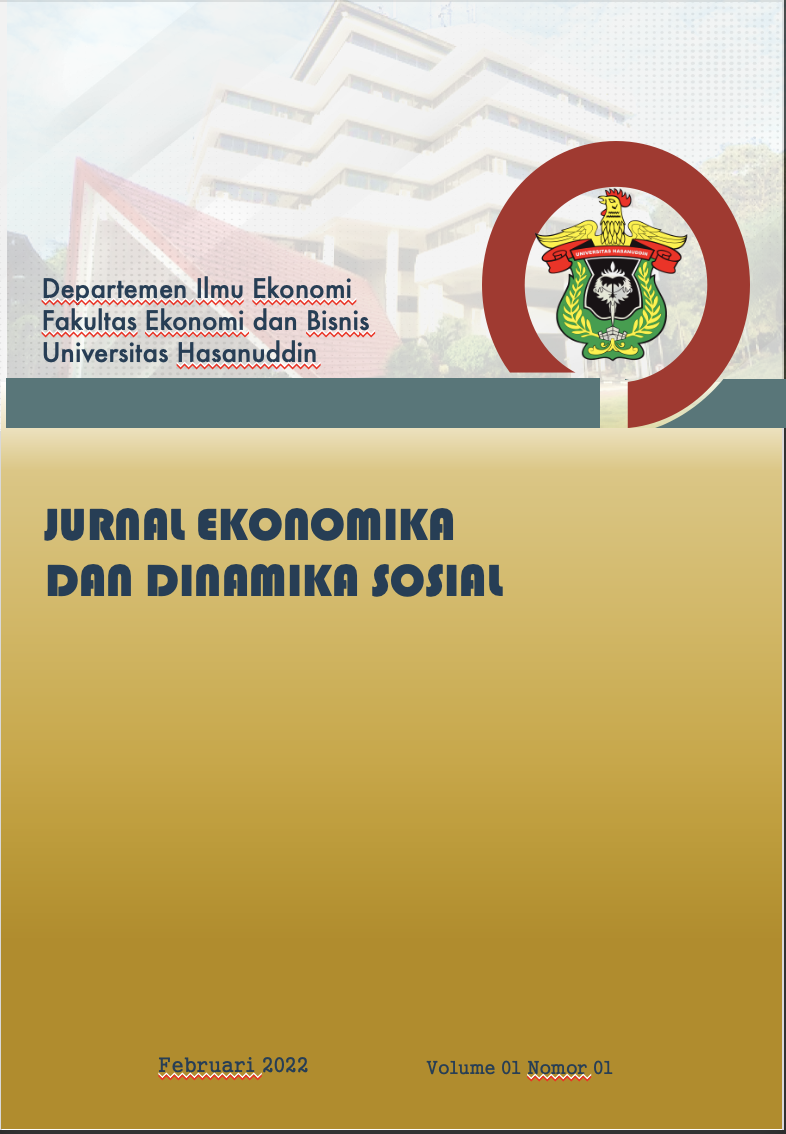Determinan Ketimpangan Pendapatan Masyarakat di Provinsi Sulawesi Selatan
Abstract
This study aims to analyze the effect of government expenditure and investment on income inequality through intervening variable, namely economic growth in South Sulawesi Province. This study uses secondary data obtained from Badan PusatStatistik and other sources in the form of panel data consisting of time series data from 2014 to 2020 and cross sectional data obtained from 24 districts/cities in South Sulawesi Province. The data used are data on capital expenditure allocation, private investment, economic growth rate Regency/City in South Sulawesi Province which were analyzed using the Simultaneous Equation Model. The results showed that during the observation period the direct allocation of local government expenditures had a negative and significant effect on income inequality, while indirectly through economic growth had no effect on income inequality in South Sulawesi Province. Other results show that investment has an effect on income inequality either directly or indirectly through economic growth in South Sulawesi Province.


